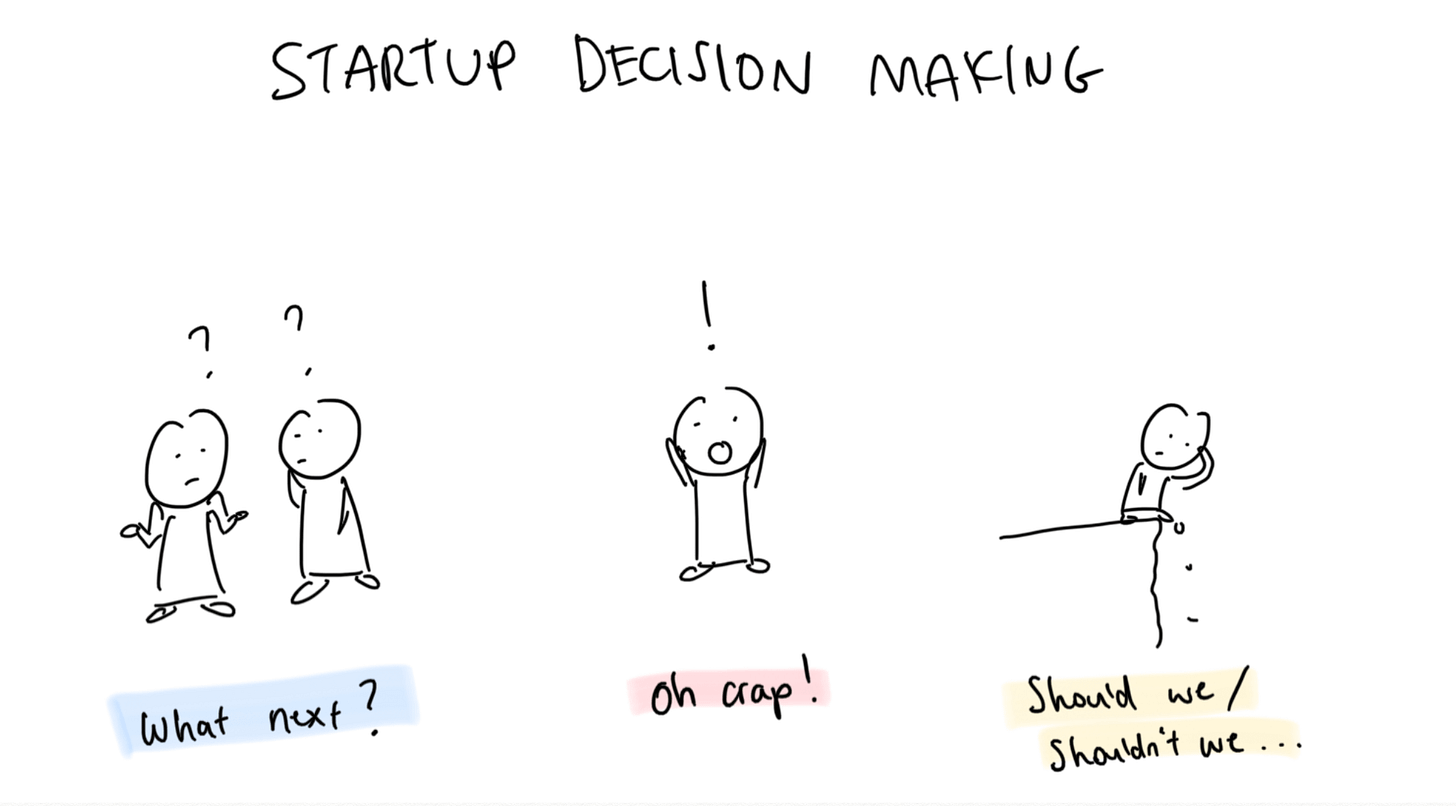Why Startups That Decide Faster Outperform Their Cautious Competitors
Start-ups don't fail because they make wrong decisions. They fail because they make decisions too slowly. After working with many growing startups, one thing is clear: making decisions quickly gives companies a big edge over careful competitors who move slowly.
The Mathematics of Iteration Speed
The math is simple and brutal:
Startup A makes one decision every two weeks with 75% accuracy
Startup B makes three decisions every two weeks with 60% accuracy
After six months:
Startup A: 12 decisions, 9 correct
Startup B: 36 decisions, 21.6 correct (rounded to 22)
Startup B wins with 140% more successful outcomes despite lower accuracy. Each correct decision is compounded by generating data that improves future choices.
In 2009, Airbnb was struggling with low bookings. The founders hypothesized that professional photos would help. Instead of extensive research, they flew to NYC, took pictures of 20 listings themselves, and saw bookings double immediately. Implementation to scale took less than 14 days.
Why Smart Founders Get Stuck
Four decision traps snare even the sharpest founders:
Data Addiction
Data-gathering becomes a narcotic. You convince yourself you're being thorough while chasing phantoms. Meanwhile, competitors ship products. Dan Ariely's research exposes our cognitive bias to overvalue missing information drastically -often paying premium prices for that last data point that rarely changes the ultimate call.
The Committee Plague
"Quick stakeholder check" that mutates into decision-by-committee cancer. One fintech I`ve worked with turned a pricing tweak into a five-week odyssey: 14 people, 7 meetings, dozens of Slack threads - to implement exactly what was proposed on day one.
The math: each person added to a decision slashes velocity by ~10% while boosting accuracy by a measly 1-2%.
Decision Weight Blindness
Treating a blog post decision like it's a fundraising round.
Twilio cracked this by implementing a ruthless Type 1 and Type 2 framework:
Type 1 decisions are irreversible (equity splits)
Type 2 is experimental (marketing campaigns). This single distinction slashed their decision latency by 60% for low-stakes choices.
The Velocity Drain
Indecision bleeds organizations through three wounds: context-switching drain, motivational atrophy, and competitive leakage.
Research shows that every time you come back to a decision, you waste about 15-25 minutes getting back up to speed. When a decision gets passed around five times, you lose nearly a full day of work - all while your competitors keep moving ahead.
How to Build Your Decision Velocity Engine?
1. Implement a 3-Tier Decision Framework
Explicitly categorize decisions by stakes:
Tier 1 (High Stakes) - Irreversible, existential decisions (fundraising, pivots)
Tier 2 (Medium Stakes) - Significant but adjustable decisions (feature launches, key hires)
Tier 3 (Low Stakes) - Easily reversible decisions (marketing copy, UI tweaks)
At Segment (acquired for $3.2B), Tier 3 engineering decisions required only one lead's approval and 24-hour resolution.
2. Set Non-Negotiable Decision Deadlines
Shopify uses a "decision by Thursday" rule for major product decisions:
Options presented by Tuesday
Discussion Wednesday
Decision Thursday
No extensions
3. Use Reversibility Analysis
Before each decision, explicitly assess:
How difficult would it be to undo?
What resources would reversal require?
What early indicators would signal that a reversal is needed?
4. Implement Provisional Decision-Making
For complex decisions:
Decide with current information
Identify what specific new information would change your decision
Set up systems to gather that information
Schedule a predetermined review date
Perfect decisions are fool's gold. By the time you've gathered every data point, your competitor has launched three products, gathered real user feedback, and pivoted twice.
The next time you catch yourself waiting for "just one more analysis" before pulling the trigger, ask yourself:
Would you rather be precisely wrong or approximately right, quickly?
In the battle between overthinking and doing, doing wins almost every time.
Speed is your unfair advantage. Use it.


